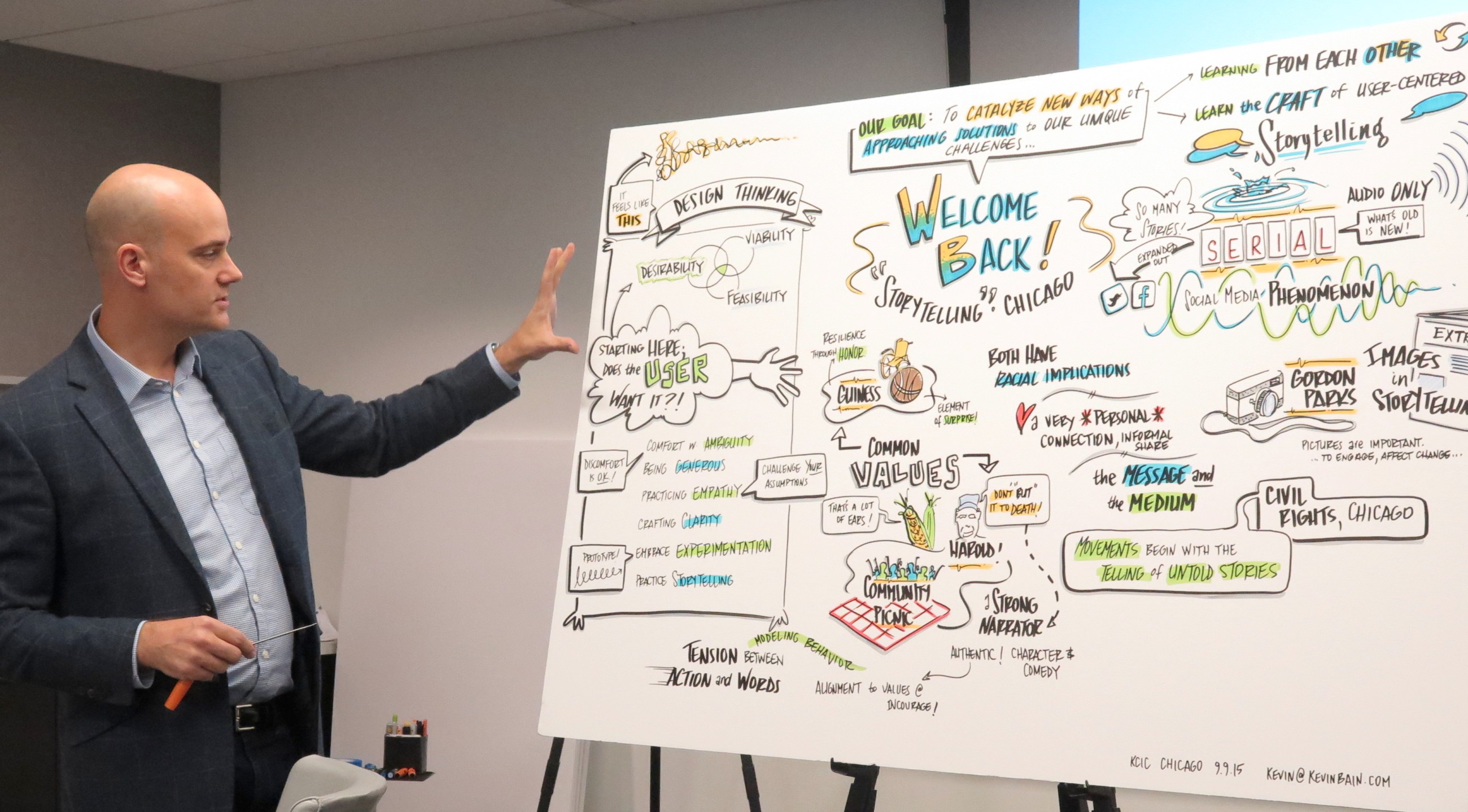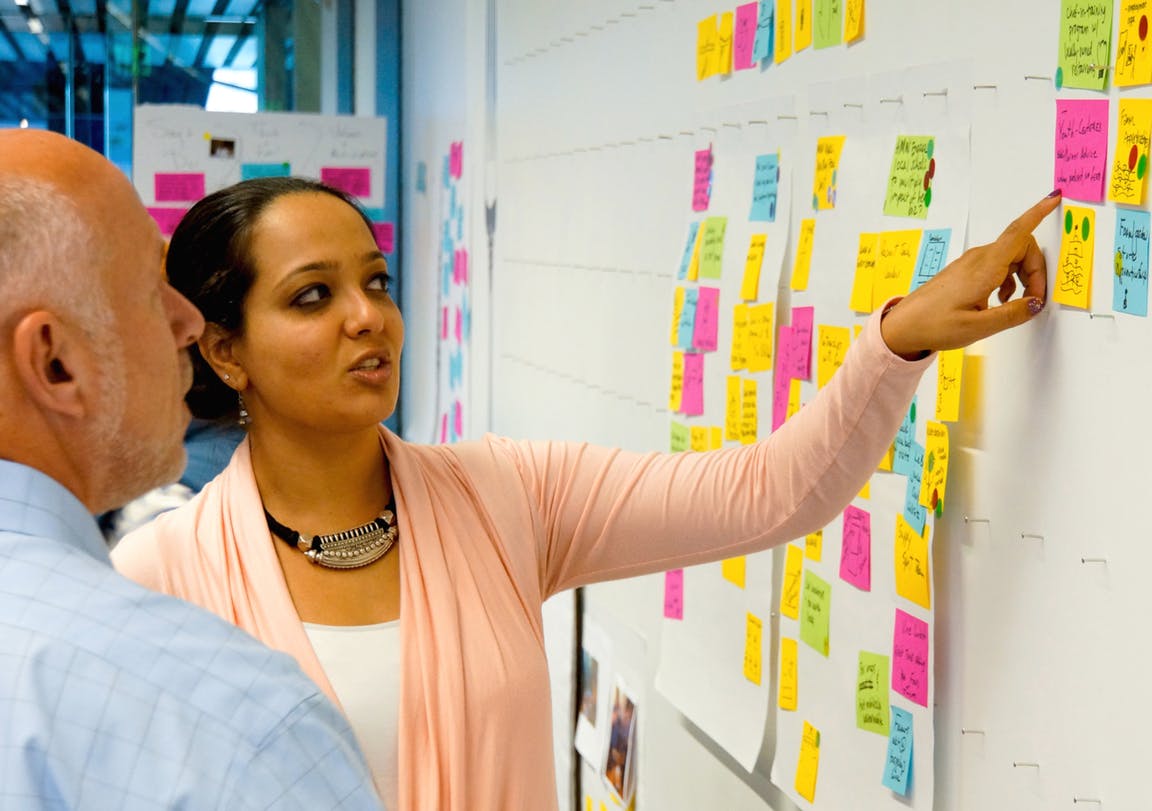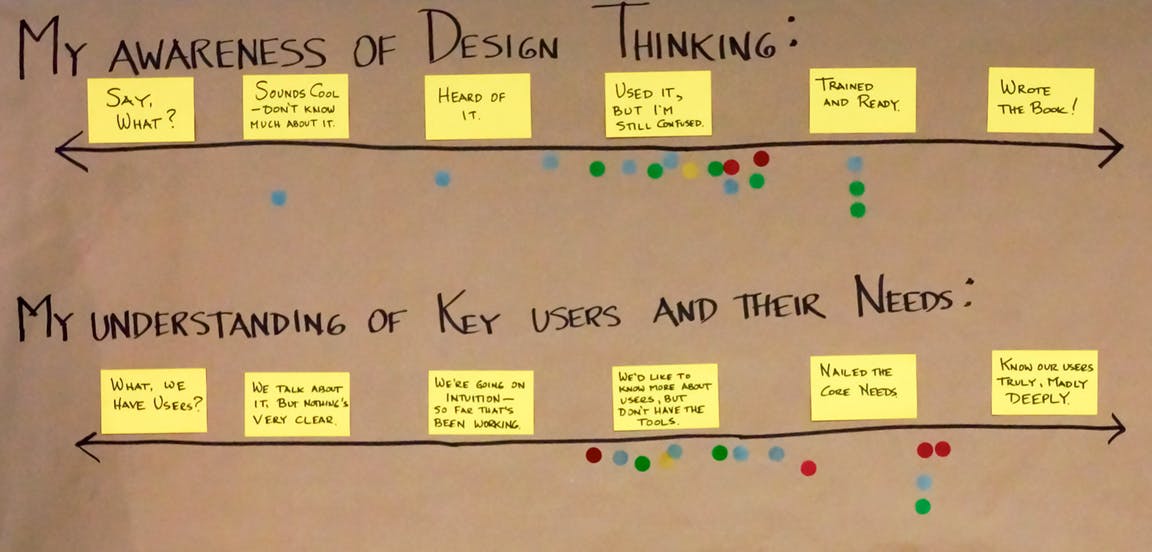
How can foundations meet information needs? New lab seeks answers
The paradox of trying to be a good citizen in 2017 is that we are inundated with information, and yet it is still hard to be well-informed on local issues. It’s not something to take lightly. Whether we care about our schools, the environment or criminal justice reform, we all need quality news and information to make the best decisions about what happens at city hall, in our neighborhoods, and on our blocks.
As a foundation that believes informed and engaged communities are the key to a healthy democracy, we know we have more work to do.
That’s why today we are excited to announce a new opportunity for community and place-based foundations to help meet local information needs. We’re looking for four foundations to join us for the Knight Community Information Lab, an 18-month experience to use the tools of human-centered design to define and fill local information gaps.
The key here is that during the lab, these foundations will be designing not just for, but with their community – so that residents are co-creating a long-term information solution to help people be more informed about and engaged in issues they care about.

The Knight Community Information Lab is years in the making, part of a journey that began in 2008 when the disruption in media became apparent, and Knight sought out local champions for news and information. The Knight Community Information Challenge encouraged community and place-based foundations to take a leadership role in this area, and offered matching grants to them for news and information projects. It ended up being one of Knight’s largest investments. Over several years, the program provided more than $20 million for 88 projects on digital literacy, the first generation of online local news start-ups and more.
The challenge successfully raised awareness, motivation and experimentation for foundations around local information needs. However, the challenge was less effective at reorienting foundations to make local information needs an integral part of their work and ongoing funding.
And today we know that the disruption in the media industry isn’t ending, but rather accelerating.
The Knight Community Information Lab is looking to address these issues by building long-term solutions that get to the heart of a community’s information gaps. We aren’t funding projects, at this point. We’re providing $65,000 to the selected foundations to go through a series of workshops, led by design thinking strategist Judy Lee Haworth.
This video can tell you more about that process:
Knight tested this process over the past few years, with four other foundations, and it was extremely successful. We both attended the workshops and watched the evolution of these foundations’ projects first hand, as they went from the research to prototype stages. Along, the way, we made an important realization: that what is being designed matters less than how it is designed. The solution can be a product or a program, or something else entirely. But the way the creators listen, understand and work with people to develop ideas and solutions around information needs is much more important.
Typically, when an organization develops a project, they skip right to the “ideation” phase, and start throwing out ideas and suggestions. However, there are several steps before this point that are critical in developing successful projects. The foundations learned to rethink the design process. They went through a research and discovery period to widen their knowledge on a specific issue they wanted to address and then designed for it in a creative, experimental way.
Today, we’re delighted to say we’re also investing an additional $1 million in those foundations — Silicon Valley Community Foundation, Incourage Community Foundation, Geraldine R. Dodge Foundation and the Chicago Community Trust — to continue their work. We’re calling them the Knight Community Information Ambassadors.
Each will receive $250,000 in matching grants, and will continue to apply the human-centered design principles as they move forward while also working together as cohort.

Here’s what the foundations will do:
Chicago Community Trust will build upon its learning around the importance of community data, and putting people first when building civic tech solutions. For this next cohort, they will host “Social Labs,” where Chicago residents will come together to explore and design solutions to alleviating the systemic issues of racism and inequality. The labs will be based on data collected through the Trust’s annual community engagement initiative, On The Table.
Geraldine R. Dodge Foundation will expand its successful work helping small New Jersey news outlets better engage the public. Dodge will support creative news and information projects that invite residents, and local institutions – from libraries to governments and grassroots organizations – to be part of the process and inspire them to take action.
Incourage Community Foundation’s original project worked along side community members to determine the future of a newspaper building – once a symbol of pride for this former paper town, but now a derelict building. Moving forward, Incourage will work alongside those same residents to design a new, interactive format for a community indicators report, one that offers real-time, actionable information about their small, Wisconsin city that residents can use to make decisions.
Silicon Valley Community Foundation has experimented with local, ethnic media with a reporting project around the education policy Common Core. At the same time, the foundation realized in order for this work to be successful, they needed to use human-centered design to integrate news and information into their programmatic work. Now, the foundation will form a regional media collaborative of mainstream and ethnic outlets to work together, and engage the public in, investigative projects on housing affordability.
The news and media ecosystem is ever changing. We faced great disruption in 2008, and those forces are continuing to fundamentally reshape how we receive – or don’t receive – local news and information, how informed we are or aren’t. We look forward to launching this new initiative and seeing new ideas come forth as to how we can respond to the very real information gaps in our communities.
Learn more and apply to the Knight Community Information Lab. Attend a webinar March 1 to learn more.
Lilly Weinberg is Knight Foundation’s community foundations program director and Michelle Huttenhoff is the community foundations program associate.
Recent Content
-
Community Impactarticle ·
-
Community Impactarticle ·
-
Community Impactarticle ·


